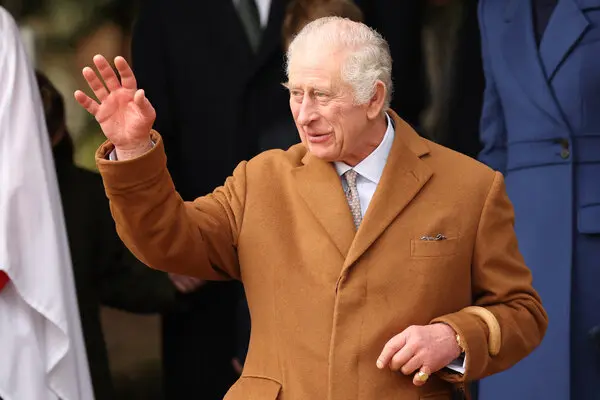King Charles has been discharged from the London Clinic after a three-night stay for prostate treatment. The monarch, along with Queen Camilla, briefly greeted the press before leaving. While King Charles seeks privacy for his recovery, the exact duration remains undisclosed, and his time away from royal duties is expected to be extended.
The palace has reassured the public that King Charles’s health setback does not necessitate immediate alterations to his constitutional duties. Rick Popert, a urology expert, has indicated a typical recovery timeline of four to six weeks following such procedures. However, caution is advised against engaging in strenuous activities during the initial phase of recovery.
“It is important to take things gently in the first couple of weeks, but I would expect patients to be fully mobile but avoid heavy lifting or strenuous exercise,” said Popert, as reported by the BBC.
This recent health development follows Kate Middleton’s departure from the same medical facility after a 13-day stay for abdominal surgery. Although details about her health are limited, the palace has confirmed that her recuperation will extend over several months at Adelaide Cottage in Windsor. The Princess of Wales has refrained from public appearances since the last Christmas, and her exit from the clinic was discreet. Prince William, along with their children, awaits her at their Windsor home.
The decision by King Charles to make his health condition public, particularly regarding his prostate issue, has sparked significant public interest. Prostate issues, though benign, are relatively common among men over 50. The NHS website notes a surge in public health inquiries related to this condition. By openly discussing his health, King Charles aims to raise awareness and encourage others to seek medical guidance for similar concerns.
The medical scenarios involving both King Charles and Kate Middleton have brought a spotlight to the health challenges faced by members of the Royal Family. The transparency in sharing information serves not only to keep the public informed but also to highlight the importance of health awareness and prompt individuals to prioritize their well-being.
While King Charles’s health condition prompts a period of recovery away from official duties, the palace has emphasized that there are no immediate changes to his constitutional responsibilities. The monarch’s commitment to taking things gently during the initial phase of recovery aligns with medical advice and reflects the importance of allowing adequate time for healing.
As the Royal Family continues to navigate health challenges, their openness about these matters reinforces the message that physical well-being is a universal concern, irrespective of one’s status. The public response to these health updates underscores the widespread interest in the well-being of the royals.
In the broader context of health awareness, King Charles’s decision to discuss his prostate issue contributes to breaking down stigmas associated with such conditions. By addressing health concerns openly, he sets an example for others to prioritize their health and seek appropriate medical care. This proactive approach aligns with the broader societal shift towards destigmatizing discussions around various health issues.
As King Charles continues his recovery in privacy, the Royal Family’s transparency about health matters remains a noteworthy aspect of their public engagement. It reflects a commitment to openness, awareness, and destigmatization surrounding health concerns, ultimately fostering a sense of shared responsibility for well-being within the wider community.














